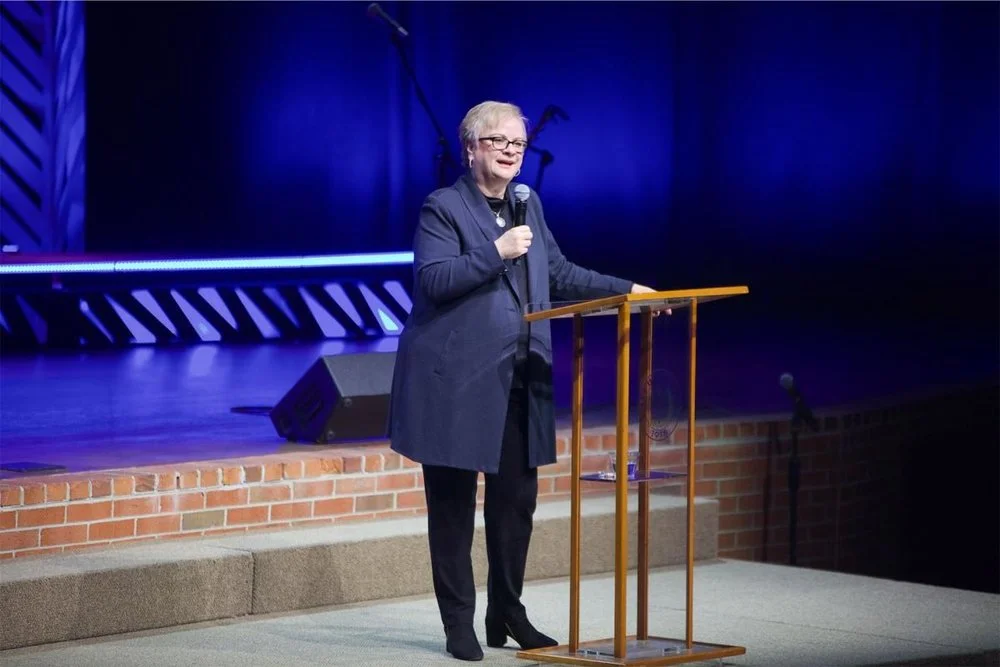New shopping company attempts return to “milkman model”
This photo shows Nestle's stainless steel Häagan-Dazs ice cream container designed for use with Loop.
Chris Crane/TerraCycle via AP
elivery services like Amazon have made doorstep delivery the norm, but what if you could have your empty containers refilled and re-delivered without even placing another order?
Recently, a platform called Loop announced that they’re developing a new way of shopping based on the “milkman model.”
Loop is the product of a company called TerraCycle, an international recycling company based in New Jersey. The goal of this shopping method is to eliminate the use of plastic and other disposable containers, replacing them with stainless steel and glass reusable containers.
The idea is for Loop to deliver groceries to consumers’ houses in these reusable containers and then pick them up, wash them and refill them—just like a milkman. Loop will begin by offering over 300 products from major companies like Procter & Gamble and Nestle. They are hoping to expand their product range in the future.
Some of the types of products they will be testing out in the beginning include shampoo, laundry detergent and even ice cream. They plan on using a double-walled tub for the ice cream to make sure it stays colder longer.
Associate Professor of Marketing Karen Mountain thinks this model, if done right, will provide a solution to a lot of problems. However, Mountain said, because recycling is not a natural part of life for many people, Loop needs to rely on strong partnerships with other brands to make their business stick.
“For Loop to be successful they have to look at what they can partner up with because [recycling] is not a natural process that we do when we get rid of a can or a steel jar. You have to make that effort to do it, and as we have seen with the trend lines, that effort is dropping off,” Mountain said. “To be successful, they have to look at who they can partner with in the distribution chain.”
Mountain believes that the companies partnering with Loop are doing this out of a genuine effort to help the environment, not just as a public relations stunt to make the companies look better.
“Your consumable and durable goods are looking for companies that have solutions [for the environment], and this is a good, viable solution on the front end,” Mountain said. “I don’t think it’s a PR kind of thing; I think it is an effort to truly be green.”
Associate Professor of Biology Dr. John Hisey thinks that the success of Loop depends on how much the milkman model catches on—what percentage of their products they are planning to do this with and what percentage of their customers end up using this service.
Hisey explains that this kind of business may favor the wealthy, which could make them less marketable.
“If it is going to be…high-end, expensive [products], then you probably are not going to sell very many of them,” Hisey said. “The Häagan-Dazs ice cream, Pantene and so on are higher-end products. So, one of the things you run into in environmental science is [that] it is easier to be environmentally conscious if you are wealthy versus if you are not. It costs you something to buy the product that is environmentally friendly because a lot of times they have an added cost to them.”
Hisey also explained that there is a reason to utilize reusable products beyond just protecting the environment. He said plastic is made out of mostly petroleum, and we are running out of this resource.
“If we use [petroleum] at present rates,” Hisey said, “there will only be a couple more decades that we are going to have a large supply of it, and then it is going to become pretty scarce.”
By using this milkman method, companies can cut down on the plastic they are currently using.
Senior biology major Summer Hancock, who is involved in the Creation Care Club at Lee, explained that this way of shopping will not only reduce waste, but will also promote a societal shift in which people take better care of their possessions.
“Long-term benefits are reducing the waste going into landfills specifically. It is going to reduce the waste that is not managed the way it should be,” Hancock said. “Also, the big thing would be the shift in the mentality, reverting back from a disposable mentality and caring about an item more and having ownership over it.”
Loop is planning for launch this spring in the northeastern United States and in Paris. The company hopes to spread to the West Coast, Toronto, the United Kingdom and Japan by 2020.
To learn more about Loop and their efforts, read the Associated Press report or check out TerraCycle’s website.



